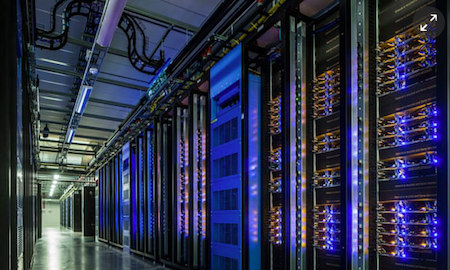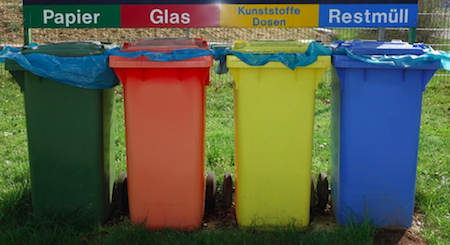Industry development in the NT a government policy vacuum
5 June 2020
Since Self-Government, the Territory has relied on the Government to employ a high proportion of its workforce. Around 40% of total employment in the Territory works in Government and community services.
Mining and Manufacturing employs 5% of the work-force but contribute 23% to the value of Territory State Product.
But it is clear that with new gas developments it will be necessary for the Territory Government to renegotiate a fair and equitable royalty arrangement with mining companies, one that is fair to Territorians.
At present the arrangement appears to be heavily weighted in favour of the mining companies.
Territorians are the owners of these valuable resources and need to be compensated in a fair and transparent manner for its extraction and sale. Transparency seems to be absent in current arrangements to the detriment of Territorians.
Royalties from mining should form an increasingly important addition to revenues in the Territory Budget and they should increasingly reflect returns that demonstrate the comparative advantage of this industry to the Territory economy.
With major pressures now emerging on the Commonwealth and Territory Budgets, the time of reckoning has arrived, brought into sharp relief following the pandemic.
It would certainly benefit employment and exports from the Territory if the more traditional, foundation industries associated with manufacturing, could receive the needed incentives to grow and develop.
Current manufacturing in the NT is relatively small scale. It has been clear for some time that the Territory economy needs to grow and diversify with a greater range and scale of manufacturing, acting as a key competitive input to Territory manufacturing.
A Gas Reservation Policy for the Territory
Prior to 2014, the east coast of Australia enjoyed a low cost and stable domestic gas supply with reasonable prices of $3 to $4 per gigajoule (GJ). At various periods since then, domestic gas prices in Australia have escalated to where they have become unaffordable for industry, the domestic consumer, and for electricity production.
During these spikes in the price of gas, Australian gas prices have been substantially higher than almost all other international markets for gas. Given Australia is one of the world’s largest gas producers this has been a major puzzle to many. It has acted as a substantial barrier to manufacturing development and diversification in Australia.
Where there is failure in the market to operate efficiently there is a need for Governments to intervene, particularly if a market, such as the gas market, is dominated by a small number of very large suppliers.
In addition, the secondary effects of gas prices are an important reason for increasing electricity prices.
Every major gas producing country has a form of gas reservation policy to protect local industry and the domestic and household users of energy. Western Australia has a domestic reservation policy that has been operating successfully for a number of years.
 It has therefore been encouraging to many in the Territory that the Morrison Government is keen to ensure that Australia has enough gas at competitive prices, for industry and domestic use.
It has therefore been encouraging to many in the Territory that the Morrison Government is keen to ensure that Australia has enough gas at competitive prices, for industry and domestic use.
Cooking with gas. Photo Kenny Luo.
The previous Federal Resources Minister Matt Canavan, has made this point: “We can’t repeat the mistakes of the past in just letting our gas be shipped overseas with no thought to our domestic requirements.”
With respect to the Northern Territory he said: “I would want Darwin (and the NT – author brackets and italics) to be a big winner under any new gas reservation policy.”
Such a policy becomes very important in the context of the Northern Territory’s Beetaloo Basin where the huge gas deposits are expected to become part of a gas reservation scheme for the NT.
Against this background it is difficult to understand why previous Territory Governments dismissed the idea of a gas reservation policy, claiming it would make the Territory less attractive to investors.
This seems to be an argument favouring the relatively small number of large gas producers that have been described by some commentators as a “cartel gouging consumers”.
Such a policy can only be described as very short-sighted. It has acted to significantly undermine Territory economic development and the diversification of the Territory economy. It results in far higher energy prices to both Territory industry as well as households.
A Gas Reservation Policy for the Territory
Methane from natural gas is made into methanol and this is used to make four main products. These are ammonium nitrate, sodium cyanide, methanol and peroxide from which a wide range of important products can be made.
These include, for example, building products, paints and resins, carpeting, adhesives, agricultural products, agents for the treatment of sewage and waste water, cleaning products, fertilisers, refrigerants, medical applications, agricultural and irrigation piping, glycol for antifreeze, and surface wetters for agricultural applications – and a number of others.
Greater natural gas production can therefore help build foundation industries and propel economic growth and exports from the Territory. It will help to keep manufacturing domestic which in turn, will create more jobs, and reduce the cost of goods.
However, if the Territory is not to be continually left behind, it is also very important that the Government is awakened to the opportunities available in the rapidly emerging sectors and products of what has been termed the New Economy and Advanced Manufacturing.
It is essential to understand that such industries are not particularly “new” – only when compared with the traditional and highly capital and labour intensive industries, such as iron and steel making and car manufacture.
The need for high tech industries in the New Economy
Australia’s labour costs make it very difficult to compete in the traditional industries. As a result, we have continued to try and depend on our service sectors like tourism and the industries of agriculture and mining.
Many now believe that while the more traditional foundation industries are important there also needs to be a government focus on kick-starting Advanced Manufacturing.
These industries are essentially knowledge based and concerned with the innovation of high-end technology products in almost all established and evolving industries.
Such sectors can locate almost anywhere because they are computer driven. What they need is high quality technical and computer based skills. There is a huge export potential in such knowledge driven industries. Exports are growing rapidly.
Advanced manufacturers share a number of important characteristics.
They are globally oriented. They produce new, innovative products with high levels of design. These products are technologically complex, reliable, affordable and available.
They are also newer, better and more exciting.
 Advanced Manufacturing products are designed and built to solve a variety of problems and therefore, have multiple uses. They are underpinned by a high component of intellectual property control and sophisticated, state of the art computer based skills and systems.
Advanced Manufacturing products are designed and built to solve a variety of problems and therefore, have multiple uses. They are underpinned by a high component of intellectual property control and sophisticated, state of the art computer based skills and systems.
A data storage centre. David Levene / The Guardian.
Such products include new computer software technologies and applications (e.g. for defence), high precision cutting and welding and building technologies, advanced robotics and intelligent computer based production systems, automation of processes, control systems to monitor manufacturing processes and products and systems for environmental management.
Many of these sectors could be located in the Territory if institutions such as government and the university provided the required support and leadership.
However, the university seems to be moving in the opposite direction with the proposed cutting of key trades and technical skills in Territory centres with the apparent support of the Gunner Government.
It also appears to be solely focussed on attempting to attract international students rather than also assisting in the building of high quality, high technology relationships with business and industry in the Territory.
In addition, the Gunner Government has been relatively silent on the policies in place to attract and develop such important industries of the here and now. In particular, it has not demonstrated an ability to keep up with the pace and intellectual and practical challenges associated with rapid technological change occurring within industry.
The British industrialist Sanjeev Gutpa who bought the Whyalla steel works and prevented it from closing, argues that Australia is lagging in almost all industries.
However, because of the emergence of new, Advanced Manufacturing industries, he believes Australia is in a position to leapfrog those countries locked in by very high capital infrastructure and labour costs in traditional industries, such as car making. Such massive capital investment is very difficult and costly to change and adapt.
Andrew Liveris, who was born in Darwin and has served as a previous adviser to Obama and Trump on US manufacturing policy, also argues that Government policies in Australia dealing with manufacturing need a major refocussing, if our standard of living is not to fall.
He is co-chair of the recently formed Territory Economic Reconstruction Commission.
Mr Liveris advocates much closer linkages between Government, research centres and private industry. Governments should be far more involved in economic development than they have been in the last thirty five years or so.
Over this time the ideas of keeping the Government out of economic transactions as much as possible, has been the dominant view of economic policy makers in the Western world.
This has been on the basis that free, unfettered trade between economic entities works best without Government interference.
However, this approach to economic development and growth brings with it major disadvantages. For Australia and the Northern Territory, these serious problems became all too apparent during the pandemic.
In particular, the export of many of our manufacturing plants and jobs overseas into Asia, because of cheaper labour costs, has come at a significant cost and risk to our health and economic security.
We have been found badly wanting in the ability to manufacture critical products essential to dealing with an emergency, whether this is a pandemic, conflict, or trade war. The over-reliance on the dogma of free trade has been shown to be naïve at best, in terms of protecting the well-being and security of a nation state, such as Australia.
While the notion of free trade and limited involvement of the Government in the economy has been the dominant economic school of thought in the West, Asian economies have grown rapidly because of effective government involvement in the planning and provision of the necessary financial incentives to stimulate economic growth and development.
Mr Liveris cites the examples of China, Japan and South Korea where careful and strategic involvement by Governments has been essential to rapid economic development and growth.
He also sees the pressing need for manufacturing to develop and diversify into knowledge and computer based industries and to take Australia and the Northern Territory into what has become the here and now – the New Economy.
In world rankings of wealth, healthcare and life expectancy for example, Australia currently sits among the top. But in a ranking measuring the complexity of products produced by a country, Japan is at the top, followed by Switzerland and Germany.
Australia is ranked at 59, between Kazakhstan and Lebanon.
This is a major warning to those concerned with the future economic development of Australia – and the Northern Territory, in particular.
It is clear that we have to become far smarter if we are not to run out of luck behind the title – The Lucky Country. In fact, such luck is fast running out!
The Importance of Environmental Products and Services to Advanced Manufacturing
Within the New Economy sits the rapidly growing environmental products and industry sectors.
Mr Liveris says environmental concerns need to be at the forefront of our thinking in building this New Economy.
“Young people care about the environment like no other generation has before,” he says. “So if you say renewable energy, you say recycling, you say preservation of the resources of the planet like water … let’s invent the technologies to go there, let’s educate our young people to seek careers in this and re-skill our existing workforce to get them out of yesterday’s industries.”
According to the Organisation for Economic Co-operation and Development (OECD), “the environmental industry consists of activities which produce goods and services to measure, prevent, limit and minimise or correct environmental damage to water, air and soil, as well as problems related to waste, noise, and eco-systems”.
This sector deals with waste management, air and water pollution, noise attenuation along with environmental services and equipment.
Environmental technologies, products and services have in the last 20 years, grown to match the aerospace and pharmaceutical industries in size – a US$450 billion global market in 2000. Currently the global market is predicted to be around US$900 billion and growing fast.
 Technologies with an increasing demand from industry include ultra-filtration for reducing oil-and paint-solvent usage, vibratory cleaning in microelectronics for reducing sludge production, and processes such as neutralisation, detoxification and evaporation.
Technologies with an increasing demand from industry include ultra-filtration for reducing oil-and paint-solvent usage, vibratory cleaning in microelectronics for reducing sludge production, and processes such as neutralisation, detoxification and evaporation.
Market drivers include the enforcement of environment legislation and the obligation to meet higher recycling targets set by European countries, the United States and Japan.
It is expected that inevitably, China and India will be forced to further confront such issues given the environmental impacts associated with rapid industrialisation.
The recycling market has been growing at 7% to 13% a year over the last decade and this rate is expected to continue.
In water and waste-water management, which accounts for a substantial proportion of the total environmental market, the strongest demand is expected to be for automatic systems, secondary and tertiary treatment facilities, and waste-water technologies such as computer monitoring systems, aerobic systems for removing contaminants, and air injection for groundwater clean-up systems.
Air pollution control has also developed rapidly. The highest growth rates in the next decade are expected for technologies such as microbial cleaning processes, electro-membrane technologies, catalytic converters, flue gas desulphurisation, and wet and flue gas scrubbers.
The main industrial sectors driving this increase in demand will be the petrochemical, steel, car and energy industries.
As Mr Liveris has indicated, there will be a need for the creation of industry clusters where the best researchers can be put alongside the best small to medium sized manufacturers to build the industries of the New Economy.
The Need for More Territory Government Support and Involvement
Valuable initiatives have commenced at the Commonwealth level to support the development and growth of the industry sectors of the New Economy. This is being actioned by the Federal Department of Industry, Science, Energy and Resources.
It is something the Territory Government will need to become far more involved with. Once again however, the Territory Government will be playing catch-up.
Growth Centres have been established, each led by a board of industry experts. These Growth Centres assist industry build the necessary capabilities and networks to assist development and growth. Each centre has its own Sector Competitiveness Plan setting out a ten year strategy, identifying where Government regulations need reform and where there is a need for more skills and research development.
The Advanced Manufacturing Growth Centre is working with the sector to increase competitiveness to drive export growth and unlock new commercial opportunities from existing and new inventions.
The Cyber Security Growth Centre is helping increase collaboration, build capability, innovate and participate in globally competitive markets.
The Food and Agribusiness Growth Centre, is focussed on increasing the share of Australian food in the global marketplace.
The Mining Equipment, Technology and Services Growth Centre works with Australian mining industry suppliers, global miners, researchers and capital providers to improve the competitiveness and productivity of the sector.
There are also Growth Centres covering oil, gas and energy resources and medical technologies and pharmaceuticals.
Importantly, there is also a centre concerned with strengthening collaboration between government and industry.
All these sectors are fundamental to the development and diversification of the Territory economy.
Universities and government supported research centres also have an obligation to assist with the development and growth of their respective economies.
This is because such economic development is fundamental to the health, well-being and standard of living of their communities. Universities should have a high level of interest in building research expertise and capabilities and forming networks with industry.
The University of Sydney for example, is heavily involved with industry partnerships and collaborations to assist develop new products and services.
Such partnerships include, preparing for the future of work with Telstra, qantum computing with Microsoft, mining automation with Rio Tinto, nanotechnology with Sirtex Medical, smarter flying with Qantas and defence science with Defence, Science and Technology.
The University of Adelaide is heavily involved in collaborative research with industry partners in areas important to South Australia, including agrifood and wine, defence, cyber and space, energy, mining and resources and health and biotechnologies.
Flinders University Adelaide is involved in connecting world-leading biomedical engineers, scientists and clinicians with medical implant global supply chain providers from Australia, China, Belgium, UK and the USA.
Research is underway to identify best practices for industry and clinical practice, new products, processes and solutions. It assists in training researchers and entrepreneurs on the commercialisation pathway of new medical technologies.
It has research centres that partner with other universities to develop and commercialise new technologies in health care.
One is left wondering how far behind Charles Darwin University has fallen in key areas of research responsibility, vital to the economic and industry interests of the Territory.
Its main concentration appears to have been on a one-sided grab for cash, from an improbable inflow of international students, to the proposed new and highly expensive, Darwin CBD campus development.
Conclusion
If the Northern Territory is to develop a viable, competitive, forward-looking and potent manufacturing sector it will require far more strategic understanding and involvement by Government and the University in establishing collaborative partnerships with industry.
Not only will the Territory Government need to become involved in the development of foundation industries that depend on cheaper energy sources, such as gas – it will also need to rapidly develop an understanding of the economic and employment benefits of advanced manufacturing and the New Economy.
It will need to quickly understand how such industries can be attracted to the Northern Territory and what incentives are required to do this.
Andrew Liveris will most certainly come up with major and valuable recommendations on how the Territory Government should proceed with regard to catching up to internationally competitive trends in industry and economic development.
However, there remain the big questions as to whether the Government has the ability, commitment and resources available, to implement such recommendations, when made.
Given the budgetary position that the Gunner Government has put the Territory in – with relatively needless expenditure on infrastructure such as the new grand stand at the Fannie Bay Racecourse for example – this task has been made far more difficult, if not almost impossible, for a number of years.
The ability of the Territory to build the necessary financial partnerships with key advanced manufacturers has been severely compromised.
This is where incompetent, budgetary decision making leading to a substantial wastage of scarce budgetary resources, can be expected to have major negative effects on Territory economic development and jobs for all Territorians.
Irresponsible government financial management can fatally derail a bright and prosperous future for the Territory and all Territorians.
 The author of this article, Dr Don Fuller (pictured) holds a first class Honours degree and PhD in economics from the University of Adelaide. He has worked as senior public servant in the Territory and as Professor of Governance and Head of the Schools of Law and Business at Charles Darwin University. He grew up in Darwin and attended Darwin High School.
The author of this article, Dr Don Fuller (pictured) holds a first class Honours degree and PhD in economics from the University of Adelaide. He has worked as senior public servant in the Territory and as Professor of Governance and Head of the Schools of Law and Business at Charles Darwin University. He grew up in Darwin and attended Darwin High School.




Much of Fuller’s analysis is superficial because it does not take account of on the ground realities.
Take the proposition that royalty arrangements are heavily weighted in favour of the mining companies.
Fuller needs to explore the reasons for this rather than just suggest that governments can change this and bemoan the lack of transparency.
NT is not a favoured destination for mining investment, especially by comparison with WA.
Green groups and factional NT politics slow every project and add immense costs.
Aboriginal interests do the same and burden companies with training and employment programs that end up being of no interest to the local communities.
There is no significant NT workforce so FIFO is unavoidable and to the NT is costly.
Everything costs much more in the NT, build a road to a mine and it will cost at least twice as much as in WA.
Mining companies don’t really want to spend hundreds of millions in the NT unless it is an outstanding project and there are many outstanding projects nationally.
It is a buyers’ market.
This is the environment that miners and the NT Government negotiate within.
Swinging the balance of power to government will take a lot more than a new policy to increase the royalty payments.
NT needs Doctor Fuller as Treasurer or Head of Northern Development Corp.
Jason hasn’t understood the article.
The article was about how to diversify the Territory economy. Sure it’s tough.
But you don’t give up before you start.
There are huge mineral and gas resources in the territory.
Territorians, not only mining companies, need to share in the wealth.
We shouldn’t give everything away just because some of us suffer from a belief that “we are not good enough”.
Solve the problems on the ground! Let’s not adopt a lazy loser attitude.
For too long Territory power brokers have been the worst enemy of the Territory!
Often at their own benefit.
Pity the Gunner Government has wasted all our money on useless projects like CDU in the Darwin CBD.